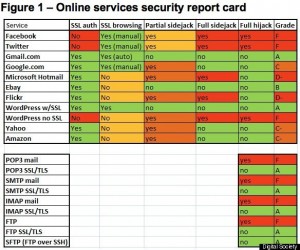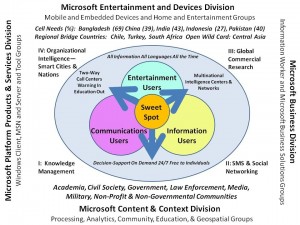Microsoft and Nokia: A tale of two elephants
Nokia reabsorbs Symbian, and Microsoft ships Windows Phone 7 — to big yawns. How they became mobile's elephants in the room
When Microsoft released Windows Phone 7 in the United States yesterday, very few people lined up at the AT&T and T-Mobile stores to get the HTC and Samsung debut models — despite all the extensive Windows Phone 7 advertising by Microsoft to goose up demand. (Maybe they read the unenthusiasic reviews from publications that got early versions.)
When Nokia announced yesterday that it was reabsorbing the Symbian operating system it had spun out as an open source effort 18 months ago, I thought, “Why bother? I thought MeeGo was your mobile OS future anyhow?” — especially given the lack of attention to the last major release of Symbian (Symbian 3) in September.
Phi Beta Iota: Both Microsoft and Nokia are at a fork in the road. The above review, vastly more critical than the fluff found elsewhere, is bleeding edge truth. Absent new management and a compelling vision–ideally one that united both companies to favor a very simple low cost cellular “key” combined with a vast global grid meshing humans with call centers and back office cloud processing, both companies appear destined for further decline.
See Also:




 The Brooklyn Space Program is a organization formed by a group of friends in New York City interested in scientific experiments, engineering, design and education.
The Brooklyn Space Program is a organization formed by a group of friends in New York City interested in scientific experiments, engineering, design and education.